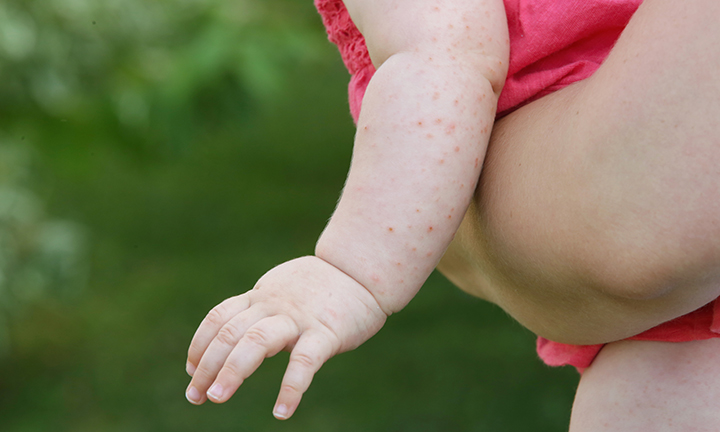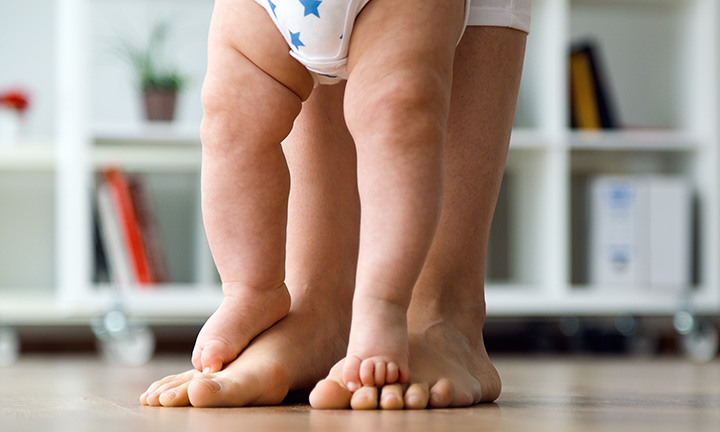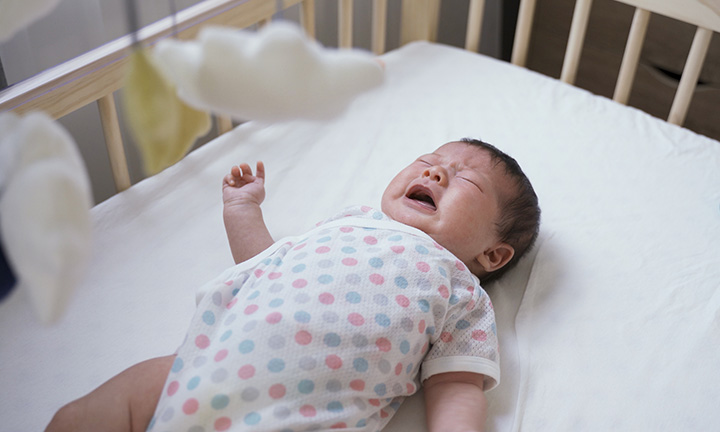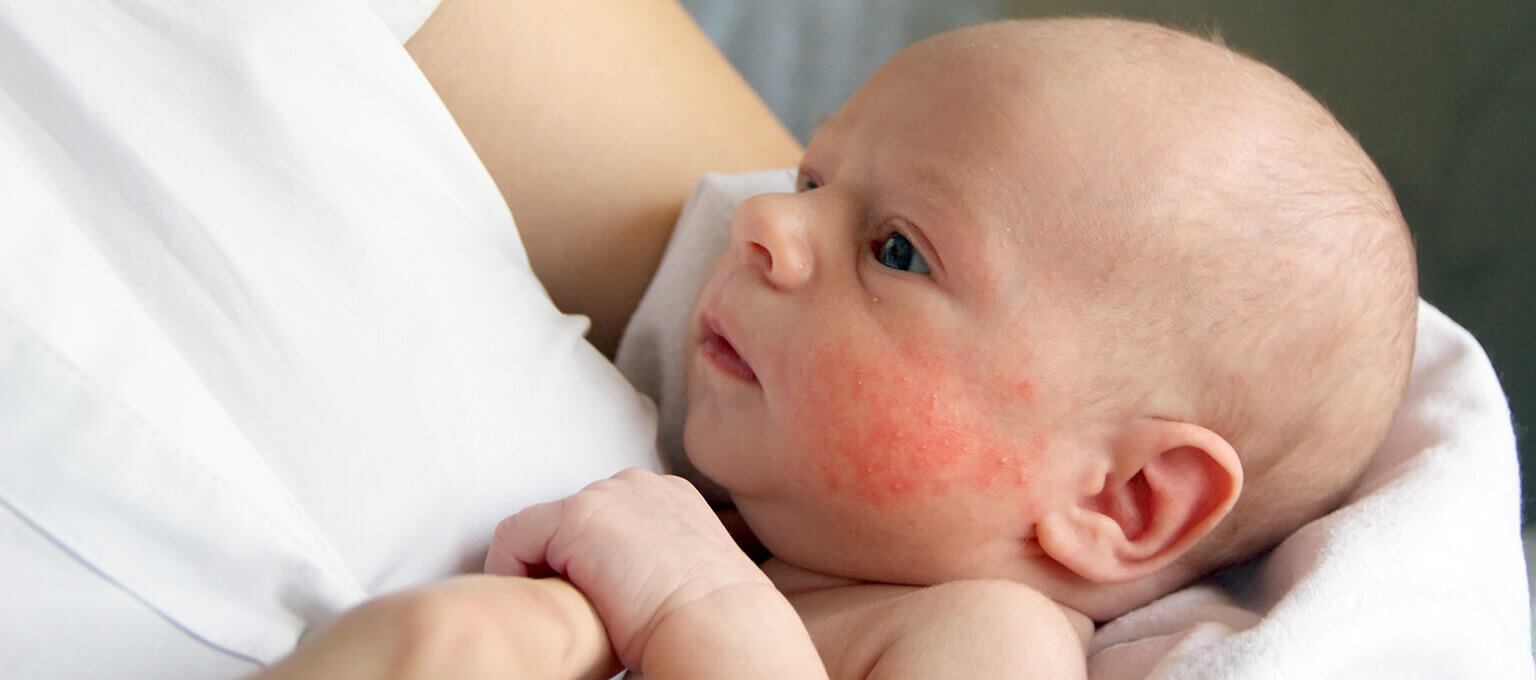
Baby Reflux – How to Help Your Baby Feel Better
It’s not unusual for babies to spit up a little breast milk or formula from time to time during or after a feed. But if spitting up – also known as reflux – happens a lot and is causing your little one discomfort, it could be a sign of a condition called gastro-oesophageal reflux disease, or GORD for short.
Although you may have thought only adults have acid reflux, babies can have it, too. In this article, we’ll explain why this happens.
Read on to find out how to recognise the signs and symptoms of reflux and GORD in babies and what you can do about it, as well as when it’s important to see your baby’s doctor.
What Is Acid Reflux and Gastro-oesophageal Reflux Disease (GORD) in Babies?
Reflux – also known as posseting, or just ‘spitting up’ – happens when some of the contents of your baby’s stomach travels back up the tube (known as the oesophagus or ‘food pipe’) that transports foods and liquids from the throat to the stomach.
Reflux is very common in newborn babies because the muscle that closes off the food pipe from the stomach is still not fully developed. If it opens when it shouldn’t, breast milk, formula or food can travel back up towards your baby’s throat.
Spitting up is not the same as vomiting. If your baby is being sick, you’ll be able to see the muscles tensing up in his or her throat. With reflux, the breast milk, formula or food is just burped up or dribbles out with no effort at all.
Although reflux is very common in babies and usually nothing to worry about, sometimes a little stomach acid may be mixed in with the milk or formula that comes up, and this can cause uncomfortable heartburn for your baby.
When reflux is painful and chronic, that is, it starts happening all the time, it’s referred to as gastro-oesophageal reflux disease, or GORD.
GORD can be uncomfortable for your baby and challenging for you as a parent, but the good news is that your little one will usually grow out of it by the age of 12 months. Reflux is most common in babies who are younger than 3 months old.
What Causes Reflux in Babies?
As mentioned above, the cause of reflux in babies is generally because their food pipe is not fully developed yet. This can lead to the muscle at the bottom of the food pipe opening when it shouldn’t and allowing any food in the stomach to come back up the pipe towards the throat. However, it’s generally something babies grow out of as they develop.
Signs of Reflux in Babies
If you’re seeing any of the following symptoms in your baby before or after a feed or meal, they may have reflux (or GORD if the symptoms are happening very frequently):
Gord Symptoms
Gord is a more serious version of acid reflux. If your baby experiences acid reflux symptoms very frequently, the food pipe can become sore and inflamed from the stomach acid. In this case, it’s important to see your baby’s doctor, who may prescribe medicine to treat the problem. Signs that your little one may have GORD include:
What Is Silent Reflux in Babies?
Your baby can have reflux without any obvious signs like spitting up, which may make it harder to spot. This is known as silent reflux, and it can happen when babies swallow the regurgitated food again instead of spitting it out.
Signs and Symptoms of Silent Reflux in Babies
With silent reflux, babies don't spit up their food, so you need to look for other symptoms. The symptoms of reflux and GORD mentioned earlier may also be present in silent reflux, such as crying or being unsettled after feeds, or coughing.
If you suspect your baby might have silent reflux but you aren’t sure, talk to your midwife, health visitor or doctor.
How to Treat Silent Reflux in Babies
Silent reflux is generally treated in the same way as reflux or GORD, depending on the severity. Read our section below on ‘How to Treat or Prevent Reflux in Babies’ for some guidance on treating silent reflux. Some examples include holding your baby upright during feeding and for as long as possible afterwards or regularly burping them during feeds.
Your doctor may also recommend using a thickening powder for formula milk or certain medicines to reduce stomach acid. It’s always best to seek your doctor’s advice if you suspect your little one has silent reflux.
How to Treat or Prevent Reflux in Babies
Most children grow out of reflux or GORD by the time they’re 12 months old, without needing any medical treatment. In the meantime, if you’re wondering how to help reflux in babies, here are some things you can try to help prevent or reduce reflux in babies, or some treatments your doctor may recommend. The following may also help prevent occasional reflux from turning into GORD:
When Does Reflux Peak in Babies?
Reflux usually starts in babies before they reach 8 weeks of age. During this early stage of infancy, it usually reaches its peak as your baby’s digestive system is still developing. While most babies experience some form of reflux during these initial weeks, it’s typically not a cause for concern.
When Does Reflux Stop in Babies?
So, when does reflux get better in babies? As babies grow, their digestive system matures, which may help reduce the frequency and severity of reflux episodes. The peak period of reflux generally subsides as they approach the age of 4 to 6 months.
By the time babies reach their first birthday, reflux is typically much less of a problem.
When to Call Your Doctor
Reflux isn’t usually a problem as long your baby seems generally happy and well, and his or her weight gain and growth are on track.
In some cases, the reflux may be caused by an underlying condition that needs to be diagnosed and treated. See your doctor if you notice any of these symptoms:
Testing for Reflux and GORD
Your child won’t usually need medical attention for reflux or GORD, but if your baby is struggling to gain weight properly or is in extreme discomfort because of reflux, your doctor may prescribe medicine or decide to run tests to rule out other problems.
Some of the tests used to diagnose severe reflux or GORD may include:
FAQS AT A GLANCE
Any of the following symptoms in your baby before or after a feed could be a sign of reflux or GORD:
- Often bringing up milk during or after feeds
- Frequent bouts of coughing or hiccoughs
- Swallowing or gulping after burping or after a feed
- Refusing feeds, gagging or choking mid-feed
- Crying or generally being unsettled when feeding
- Frequent ear infections.
The Bottom Line
Most bouts of reflux will clear on their own in time, but if this condition does develop into GORD, it can usually be treated and managed successfully by your doctor. If you think your baby’s reflux is getting worse, ask your doctor or health visitor for guidance. It’s a good idea to be proactive so that you can help prevent the reflux from getting worse and turning into GORD.
Read more about Baby
Join Pampers Club and get:













